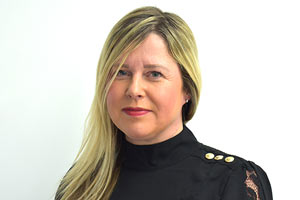How women can thrive in a career in renewable energy
Farm Diversity talks with IWD, Rachel Galbraith, Director and Head of Agriculture, Renewables & Sustainability at MAF Finance Group for International Women's Day, on how she has flourished in her male-dominated career choice.
 Q) Tell us a little about yourself
Q) Tell us a little about yourself
A) I’m Rachel and I’m a mum to my 11-year old daughter, Bella. I recently married Robert, third time lucky through lockdown, and live in Mansfield in the East Midlands. When I’m not working I love to run, read and paint, picking up where I left off from my A-Level art days.
I’ve been working at Maf Finance Group since 2018 and enjoy working with the agricultural sector to help and advise them financially on their renewable energy plans. Prior to this I have been in banking all my working life and started my career with Barclays where I became a branch manager by the age of 22, which was very young at the time, before moving on to NatWest business banking. At this stage, I completed a business degree at Derby university once a week in the evening. My career progression speaks volumes about my character as I’m tenacious and very determined. Some customers describe me as being like a dog with a bone as I will move heaven and earth to help them with their funding requirements! I always think outside the box as I’m not one to give up when finance options become limited.
Q) How did you start working in renewable energy?
A)I was introduced to renewable energy when NatWest launched their small business renewable energy loan scheme. It gave me an insight into how complex and fast-moving the funding process can be. I then worked in the renewable energy team at Lloyds bank for two years and became much more involved in helping farmers looking to diversify their business and quickly realised the potential renewable energy has for the farming industry.
Nowadays, I mainly work with wind, power, and biomass funding requirements, as well as ground source heat pumps. The funding can span from £100k – £2m per project with the aim of creating a return on investment.
Q) What is it like to be a woman working with farmers?
A) Personally, I sometimes feel that I am initially underestimated being a woman but my approach has always been to stay current in the sector and understand what’s happening across all parts of the industry, whether that be dairy farmers or pig farmers. By keeping on top of commodity prices and the impact this can have on any farming business is how I earn my respect. Plus, I read lots of industry articles to keep me current on what’s happening in the farming industry to help me stay at the top of my game.
Q) What have you found to be your biggest challenge?
A) On a personal level, it’s trying to balance being a working mum. I work full time so the guilt can often creep in. My number one priority is being a mum so I have to say no to work events from time to time so that I can spend quality time with my daughter. Learning the art of saying no is something I’m still trying to perfect but if I make choices, I try to stick to them and I generally find people are really good at respecting them.
Workwise, I find the accreditations and tariffs around renewable energy costings to be quite frustrating as they are constantly changing or phased out. Since COP26 more investment is being made in renewable energy but it gets harder to find what the cost-benefit is to my customers. By understanding where the trigger points are I can generally find the best solution and this is where working with the right people can really help.
Q) Have you seen an increase in women working in your field and the farming industry in the last few years?
A) Whilst the industry is still male-dominated when I work with family-run businesses it’s amazing how many women are involved in originating ideas. A lot of discussions happen around the kitchen table!
Women farmers are on the rise, and so are women suppliers too. I attend a great woman in agricultural forum and not only is the uptake for this event increasing each year, so is the recognition for women’s contribution to the industry. Minette Batters, head of the NFU, is a great example of this. She has a big voice and is using this to recruit more women to the industry as a whole.
Q) Do you have any advice for women looking to begin their careers in renewable energy?
A) Don’t be fearful, and don’t be put off by entering an industry that is male-dominated. No one is a true expert but if you surround yourself with good people then you will find the answers somewhere. I don’t hesitate to use external advisers on some of my finance deals as the technical project management of a 16- 30 week project is not my expertise, this is why I would look to enlist an expert with the right quantity surveyor skills and mechanical/engineering expertise to collaboratively take these type of projects forward. Being customer-centric is a number one priority for me and this attribute has served me well in my career.
- Log in to post comments

